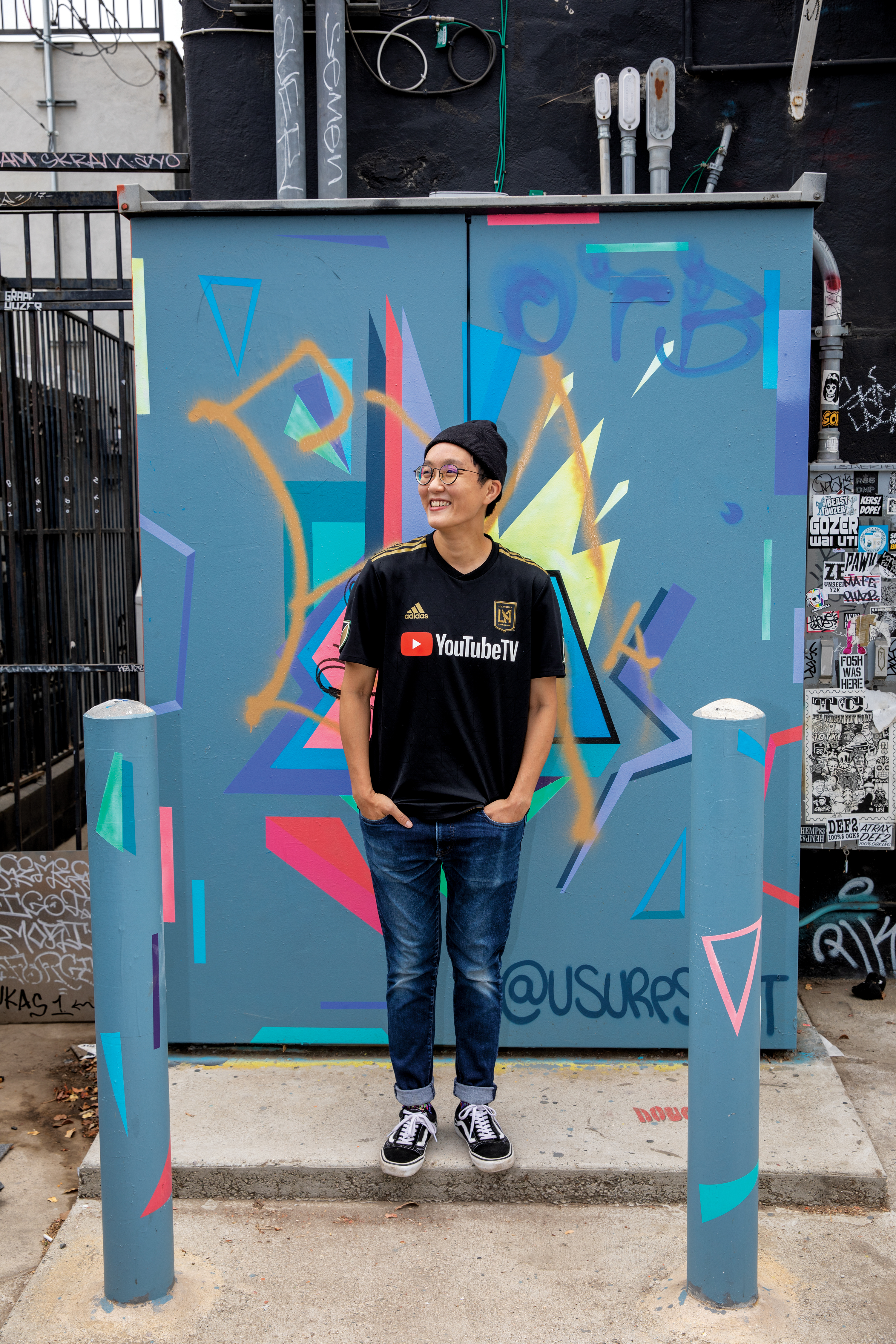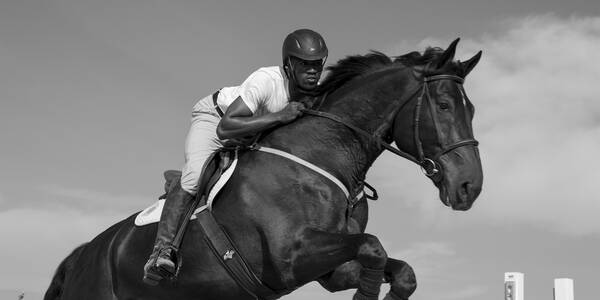
Never Tell Her the Odds: Cinematographer and alumna Mego Lin excels in a male-dominated field
Nobody ever seems to have told Graduate Film alumna Mego Lin the statistical chances of a woman’s making it as a cinematographer. In the 92-year history of the Academy Awards only one woman—Rachel Morrison, who shot 2018’s Mudbound—has been nominated for best cinematography.
Yet, since graduating, cinematographer Lin has shot music videos for artists like Arlissa, commercials for companies like Puma; and films for directors like Lei Tao. “It was probably a case of ignorance being a blessing,” says Lin from her home in West Hollywood, reflecting on how she beat the odds. “I didn’t know the numbers, so I didn’t get discouraged.”
It’s late June and since this is the time of COVID-19, Lin is speaking via Zoom. Her virtual background is a screengrab from Nintendo’s Animal Crossing, the adorable life sim that became a much-needed distraction early in the pandemic. Lin and her girlfriend’s avatars are seen with their eyes closed and fingerless hands clasped, wishing upon a shooting star. “It’s very addicting,” Lin says, with a laugh, of the game. “I have to force myself to peel away from it.”

Born and raised in Taiwan, Lin grew up watching Hollywood thrillers and the films of Hayao Miyazaki. Since she performed well in math and science on her advanced subjects test, she chose to apply to colleges offering civil engineering. But after spending one unhappy college year studying in that field, she switched gears and moved to the U.S. to study advertising at the University of Oregon. Ultimately, she graduated with a degree in fine art, but some multimedia experimentation had sparked within her a curiosity about filmmaking.
In 2010, Lin visited ArtCenter and met with Bob Petersen, then-Chair of the College’s Graduate Film program (called Broadcast Cinema at the time). She came away from that meeting believing her ability to visually capture moments of people’s lives would translate well to cinematography.
In a two-term course taught by Professor Victoria Hochberg, each student was tasked with writing a short film and directing an on-campus shoot. The students took turns performing the other on-set jobs. That experience, Lin says, gave her a strong understanding of the entire filmmaking process.
That course is also where she met classmate and future frequent collaborator Jon Jon Augustavo. During a break between terms, the accomplished Filipino American director invited Lin to Seattle to shoot a few music videos. One of them was “Same Love,” by hip-hop duo Macklemore and Ryan Lewis. More than a song, that 2012 hit became a rallying cry for marriage equality, with lyrics like these: “Whatever God you believe in / We come from the same one / Strip away the fear / Underneath it’s all the same love.”
As the video’s director of photography, Lin used warm, naturalistic imagery and intimate, hand-held camerawork to bring into vivid focus the life journey of a gay man and his loving partner, who had stood by his side for decades. The video became a phenomenon. At the time of this posting, it has racked up nearly 256 million views on YouTube. “Same Love” and the rippling effect its message had on pop culture and beyond—three years before the Supreme Court legalized gay marriage—meant a great deal to Lin, herself a lesbian.
Based on a series of short stories, In a New York Minute is a 2019 feature shot by Lin and directed by fellow Graduate Film alumna Ximan Li (MFA 15). The lives of three Asian women become intertwined over the course of the drama. The film premiered at the Newport Beach Film Festival and went on to screen at several other festivals. Originally, the plan was to target the Chinese market. The only problem? One of the storylines hints that a protagonist might be gay, an element the Chinese government would have censored.
Rather than change that aspect of the story, Li reworked the script so that it would be bilingual (English/Chinese). She shifted the setting to New York and changed the characters from Asian to Asian American. “That’s a pretty strong decision,” says Lin, adding that the changes meant the film needed to be marketed more as an American indie film. “Changing the character would have meant really changing the story, so I really applaud Li for sticking with her idea.”
The day after this interview, Lin, Augustavo and a small crew will head to a canyon road on the outskirts of Los Angeles to shoot (in a safe, physically distant fashion) a commercial for the bicycle company Specialized. The goal of the shoot—the first one Lin has done since the lockdown began—is to get footage of professional cycling brothers Cory and Justin Williams, who are Black, riding a new racing bike.
“Stereotypically, cycling is seen as something for rich, white males,” says Lin of the sport, whose biggest competition, the Tour de France, does not even allow women to compete. “This shoot is a really low budget thing, but it’s an opportunity to advocate for people of color.”





